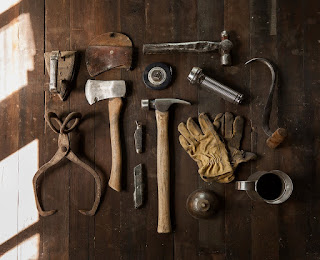Knife crime is everybody's problem
"We pray silently that our own children are safe in their bedrooms shooting each other on Fortnite."
Fifteen-year-old Baptista Adjei looked like a million other
lads of his age in London.
Young, black, a sportsman, he could easily have been a member of my son's football team. Or one of the dozens of
teenagers my husband teaches every day in Tottenham.
When I saw Baptista’s cheeky face staring out from my laptop
following his murder a few weeks ago, my eyes welled with tears.
He had been fatally stabbed in Stratford, dying outside a branch of McDonalds’ in the middle of the afternoon, reportedly still wearing his school uniform.
He had been fatally stabbed in Stratford, dying outside a branch of McDonalds’ in the middle of the afternoon, reportedly still wearing his school uniform.
This last heart-wrenching detail disabused anyone still thinking that violent death happens only to “deserving” gangsters stalking the streets at 3am.
Because of course it doesn’t. Only 18 months earlier, in exactly the same area, Beniamin Pieknyi, 21, was knifed in the chest in an unprovoked attack while walking through a shopping centre.
And the list goes on.
In London so far this year, 23 teenagers have been violently killed, with many more wounded. Throughout the capital, violent deaths of young people have, for many, become relatively banal.
Middle class commuters see the stories online, express shock, and flick back to their Twitter feeds, podcasts and Amazon accounts.
We pray silently that the victims were perhaps “involved in drugs” and that our own children are safe in their bedrooms shooting each other on Fortnite.
White people comfort themselves that most of the victims are not like them. “It’s a black problem”, we tell ourselves as we order ourselves Ercol furniture for our half-million pound terraces.
But of course it isn’t, actually. It’s everybody’s problem - we are all humans sharing the same streets, the same schools, the same bus stops.
Perhaps one problem is that many people choose not to share those things.
Every time we send our kids away to posh schools outside the area, or drive our children the 500 yards to school, we make violent crime somebody else’s problem but we do nothing to help solve it.
The more we keep our children off the streets, and out of the parks, those spaces become more off-limits than ever.
By accepting that the streets are dangerous and adjusting our lives to fit with that, we only make things worse.
Parents from all walks of life - from the middle class homeowners in gentrified streets to the single mums in council flats with far fewer options - need to unite in saying it is not acceptable. Violence on the streets is not inevitable.
While thousands across the world protest against global warming, anti-knife crime events are usually modest, local, and fail to cause a national stir.
The howls of the victims’ families, usually from poor backgrounds, are rarely enough to be heard by people in power.
The media have been accused of alarmism over knife crime statistics, and the authorities have pointed out a recent 25 per cent fall in the number of murders in the capital.
But these hard numbers don't help those living at the epicentre of the violence.
And you cannot comfort a bereaved mother with a downward pointing graph.









Comments
Post a Comment